
An earthquake with a preliminary magnitude of 6.7 rocked the northern region of Japan at 12:25 JST, the weather agency said.

Following the nuclear test by the Democratic People’s Republic of Korea on Jan 6, the United States flew a nuclear-capable B-52 bomber over the Korean Peninsula on Sunday. US allies also have been active, with the Republic of Korea considering more deployment of US "strategic assets" and Japan boosting its presence in the South China Sea.
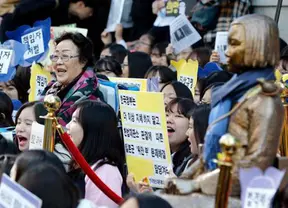
South Korea's wartime sex slavery victims on Wednesday refused to receive reparations from the Japanese government, calling the Seoul-Tokyo agreement on the war crime a "nullification."
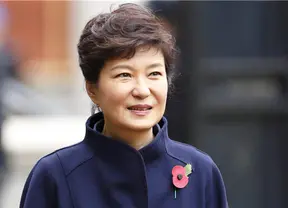
South Korean President Park Geun-hye on Wednesday urged Japan to play its role in implementing the bilateral agreement on Japan's wartime sex slavery of Korean women during World War Two.
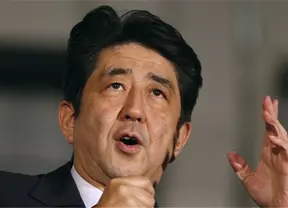
Japan and the United States confirmed early Thursday to closely cooperate to cope with the hydrogen bomb test conducted by the Democratic People's Republic of Korea (DPRK) in the previous day.

Vice President of Japan's ruling Liberal Democratic Party (LDP) Masahiko Komura said here Wednesday that he will pay a five-day visit to Russia from Sunday to help reach the goal of a Japan visit by Russian leader Vladimir Putin.
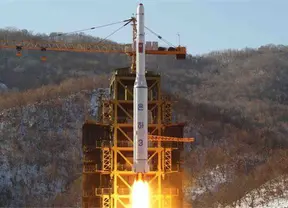
Japanese Prime Minister Shinzo Abe on Wednesday condemned a hydrogen bomb test conducted by the Democratic People's Republic of Korea (DPRK), saying the test was a "significant threat," according to Japan's public broadcaster NHK.

There’s a lot to look forward to in the Year of the Monkey. Here are just a few of the top Japan-related events you won’t want to miss in 2016.
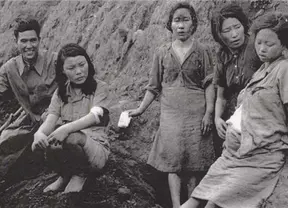
The high-profile agreement stricken between South Korea and Japan on the issue of "comfort women" has drawn global applause as well as dubiousness over the motives of reaching such a deal and its real effect.
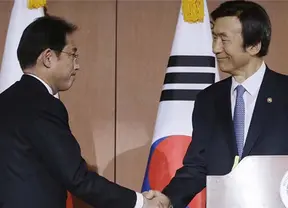
As Japan and South Korea agreed to settle the long-standing "comfort women" issue between the two sides, more sincerity and actions are needed from Tokyo to better resolve the sensitive historical matter.

Like many men his size, Norihito Kurashina dreads shopping for clothes. “The skinny jeans trend has done me no favours at all,” the 52-year-old magazine editor says, the lower buttons of his shirt straining a little as he shifts in his seat. “It’s really difficult to find anything that fits properly, so I often end up with clothes that I can just about squeeze into.”

In August 1910, the Empire of Japan formally annexed what had once been the sovereign nation of Korea. It is only now, over a century later, that Japan and Korea have formally reconciled one of the darkest legacies of that era: the 1930s and '40s recruitment of Korean women and girls as sex slaves known as "comfort women."
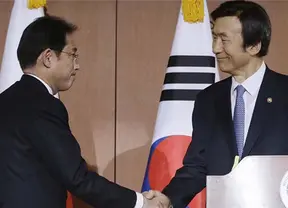
South Korea and Japan reached a final, irreversible agreement on Japan's wartime sex slavery of Korean women, but complaints remained as Seoul failed to extract Tokyo's acknowledgement of "legal" responsibility for the war crime.

China responded to the agreement reached by Japan and the Republic of Korea (ROK) on Japan's wartime sexual slavery of Korean women during World War II on Monday, calling on Japan to deal with historical issues in a responsible way.
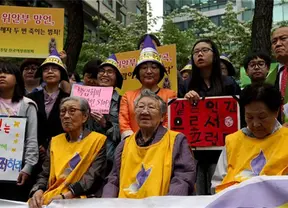
Senior diplomats of South Korea and Japan met in Seoul on Sunday to discuss Japan's wartime sex slavery of Korean women, a long-running issue which has prevented the bilateral ties from improving.
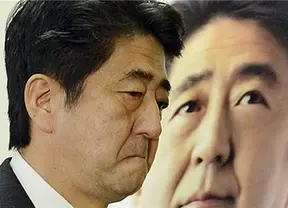
The cabinet of Japanese Prime Minister Shinzo Abe green-lighting defense spending for the next fiscal year, which at around 42 billion U.S. dollars is the highest since record keeping began, is a testament to the hawkish leader's belligerent agenda in the months and years to come.

The Cabinet of Japanese Prime Minister Shinzo Abe approved a record-high military budget on Thursday marking the fourth consecutive year that spending on defense has increased.